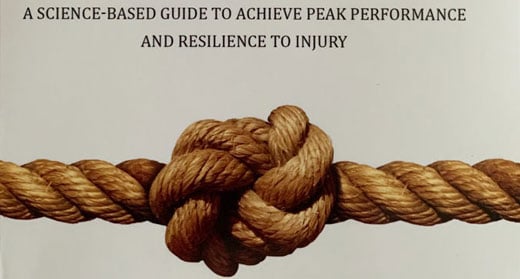by David Oscar: The ancient Chinese philosopher, Lao Tzu, said: “Silence is a source of great strength.”
He was followed by the Buddha, Siddhartha Gautama, who also said, “Meditate. Live purely. Be quiet. Like the moon, come out from behind the clouds! Shine…”
Silence and quietness are among the greatest virtues a person could have. Knowing when to speak and when to be silent is mastery, and this knowledge protects the person who possesses it.
While we should aim to have good social relations by interacting with people often, remaining quiet for the most part is considered intelligent and it also makes the person appear wise.
Here, we take a look at how you can use meditation to cultivate the virtue of quietness that will help you master how to be a generally quiet person, how to speak only when it’s necessary, and only talk about things that are of benefit to people and which also increase your honor, as opposed to otherwise.
Understanding Short Term And Long Term Silence
Before we get started, it is important to understand there are 2 types of silence, short-term silence, and long-term silence.
The short term silence is where you consciously decide to remain quiet in a particular situation for a given period, usually a short period.
For example, if someone is speaking and you want to hear what they are saying, you have to keep quiet and listen attentively to them.
Also, if you are seated with someone who is trying to make you speak about something you are not comfortable with, you might choose to remain quiet and not say anything about the subject.
This type of silence is practiced by all people regardless of whether they are introverts, extroverts, or ambiverts.
Long term silence is the type of silence that is cultivated through having many periods of prolonged silence.
Long-term silence is achieved through practicing short-term silence for a much longer period and often.
Think about someone who likes being alone, and who enjoys their own company. They go out once in a while and make friends fairly often but the better part of their lives is spent in solitude.
When they are around people, they speak less, listen and observe more.
We will be addressing the long-term type of silence here and how you can become a quiet person through working with short-term silence frequently and combining it with meditation and awareness.
Importance of Being Quiet
There are so many benefits that come with being quiet. Some of them include:
- Lowering cortisol and adrenaline levels – Studies have found that as few as two minutes of silence can have a relaxing effect on your brain and body. It helps to ease off tension due to its effect on blood circulation and blood pressure in the brain.
- Improving observation skills – When you are quiet for a long period, your attention shifts from yourself to others and to the environment. This then helps you see and hear better, and become a better observer.
- Promoting the growth of new cells in the brain – Maintaining silence for about 2 hours has been found to help increase the growth of new cells in the area of the brain that is associated with emotions, learning, and memory, called the hippocampus.

- Improving your ability to reflect – In solitude, you are better able to explore various aspects of life in great depth. You get to go beyond the surface level comprehension to understanding deeper connections between things which in turn help you understand yourself and life better, and be more inclined to things that improve your life.
- Enhancing your level of creativity – When you are quiet, you are in a much better position to gather your thoughts and focus your attention on a problem that you need to solve. You get the ability to come up with new solutions and unique approaches to different challenges. It is believed that ideas and solutions to problems come when you focus intently on the problem or when your attention is completely away from the problem. With silence, you explore the first option easily.
- Increasing your sense of self-reliance – When you get used to being alone and become comfortable with it, you no longer feel the need to be around people every time. You feel complete on your own and can enjoy your own company more. You feel more independent.
- Strengthening your relationships – When you learn to talk less and listen more, you allow others to feel free to express themselves without the fear of being constantly interrupted. It makes them feel heard and understood and it strengthens your bond with them.
- Becoming more careful – People who embrace silence tend to talk when necessary about necessary things, and this helps them think before they speak or act. In turn, they protect themselves from self-destruction through their words and actions.
How Meditation Helps You Become a Quiet Person
When it comes to cultivating silence, meditation actually has a lot to offer.
To begin with, meditation is properly defined as a practice that helps train the mind in relaxation and focus through silencing the thought process to help it become calmer and aware.
By meditating consistently, you get to train yourself to reduce the thoughts that keep arising naturally and aim to have fewer of them. And when you silence your thought process and the constant mental chatter, you naturally want to talk less because whatever you talk about has first been conceived by the mind.
Also, meditation is known to increase your attention span. By practicing meditation, you are able to influence the brain patterns that are linked to low levels of attention and reduce mind wandering.
Having a much higher attention span can help you understand things better and reduce those moments of speaking that come from not understanding things well and having to ask questions repeatedly about the topic being discussed.
Also, the fact that meditation helps with improving mental performance especially in learning, memory, creativity, problem-solving skills, and information processing, can go a long way in helping you figure out things by yourself easily without having to engage others constantly so that they can explain them to you.
Forms of meditation such as mindfulness meditation allow you to be present and aware which helps you be mindful of your thoughts, words, and actions and in turn be more able to choose when to speak and respond, and when not to.
Moreover, those who get into vipassana meditation are usually encouraged to attend a 10 days course or retreat that is aimed at helping beginners gain a good understanding of the practice and how to make it work in their lives.
Out of the 10 days they are there, they remain silent for 9 full days and this can make a good basis for practicing quietness.
Loving-kindness meditation, on the other hand, recommends being loving and kind to people. And among the acts that show these virtues is listening quietly in kindness. By listening more and speaking less, you give others a chance to fully express themselves and make them feel valued. You also get to learn to be quieter in the process.
Practical Approach To Training Yourself To Be Quiet Through Meditation
There are many approaches you can take to train yourself to be quiet using meditation.
Among the best of these approaches is mindfulness meditation.
With mindfulness meditation, you first aim to learn and master the art of remaining aware and present.
When you meditate, you get to experience how it feels to be in the present moment, being aware of your thoughts, feelings, sensations, and even your environment.
With consistent meditation, you can then take this awareness you build from meditation outside your sessions and become more aware as you go about your daily activities.
As you are aware of the activities and conversations you engage yourself in and how you present and express yourself, you can then make a conscious decision to reduce and tweak those engagements so that you have more moments of silence than you do of speaking.
With the mental space you create through awareness, you can think about what you want to say, and summarize that in a few words by getting to the essence of the matter. When you talk too much and become aware of it, you can then quickly change it and sum up what you are saying quickly and go back to being quiet.
As you progress, you can then choose the conversations you find yourself in and decide which ones you can have less of and which ones you can participate more in while contributing less.
As you keep making these small changes, you will come to realize that you are getting better at applying short-term silence regularly, and eventually, you will become a much more quiet person than you were.
You will even be perceived as a quiet person by your friends and family and therefore get engaged by them only when necessary and in the things that really matter.
Tips to Make You Even Quieter
Here are some extra tips that will help you make much smoother progress with building your level of mindfulness as well as strengthening quietness as part of your personality:
- Work with mindful listening and speaking, where you aim to be aware of yourself as you are talking to other people. When you are listening and also speaking, seek to be aware and you will notice that you will naturally want to incline towards quietness.
- Be more calm and patient when you talk to people. Try to talk softly and listen to others speak without interrupting them and then speak when they are done.
- Visualize how you would want your conversations to be before you get into them. When you are alone, close your eyes and imagine speaking to someone as the quiet person you want to be. Then, before you go talk to people, make a decision to carry yourself as you visualized, with the help of awareness.
- Allow others to dominate the conversation when the conversation is not something you need to strongly voice your opinion on like in a work-related discussion. In casual chats, let others speak more so that you can listen and avoid talking unnecessarily.
- Make casual conversations more about the other person rather than yourself. It makes it possible for the other person to speak more and you to listen more.
- Consider using facial expressions instead of verbal responses in various situations. Instead of saying “Great!” to someone commenting about something as they walk away, you can do a thumbs up, and so on.
- Keep a speech diary or journal where you record your progress and determine if you are actually making progress with building silence in your life.
- Acknowledge that the journey won’t be smooth. There are times you will win and times when you’ll lose. Just keep going and you will get to where you want to be soon.
- Explore your hobbies more and find new ones that require you to spend a good deal of your time alone.
- Observe how the quiet people you know carry themselves in different scenarios that might require them to talk a lot and learn from them. Think about it and figure out how you can apply the same in a unique way that complements who you are as a person.
Conclusion
In summary, learning to be silent is a journey. You have to go through the process step by step.
By looking through your life and identifying the areas where talking too much negatively affects you and working consistently to better yourself in those areas, you will slowly gain mastery over your speech and life as a whole.
As you keep meditating and applying awareness and silence to more situations you find yourself in, you will soon realize how possible it is for you to be quieter.
The secret to making all this work is to start now. Make up your mind and take action now to begin improving your life.
Author Bio
David Oscar is a huge meditation and mindfulness enthusiast. He is also a mental health researcher and the editor of Improve Your Brain Power, a website that shares the legitimate and effective ways to improve the power and function of the brain.












































